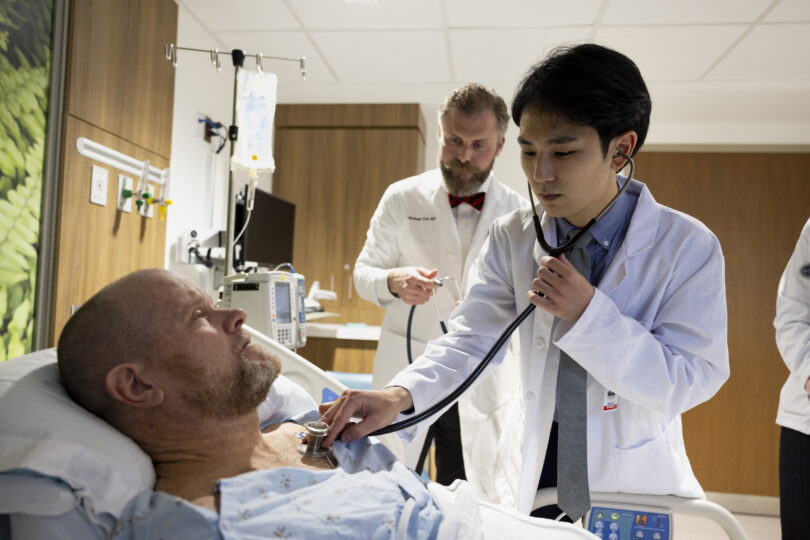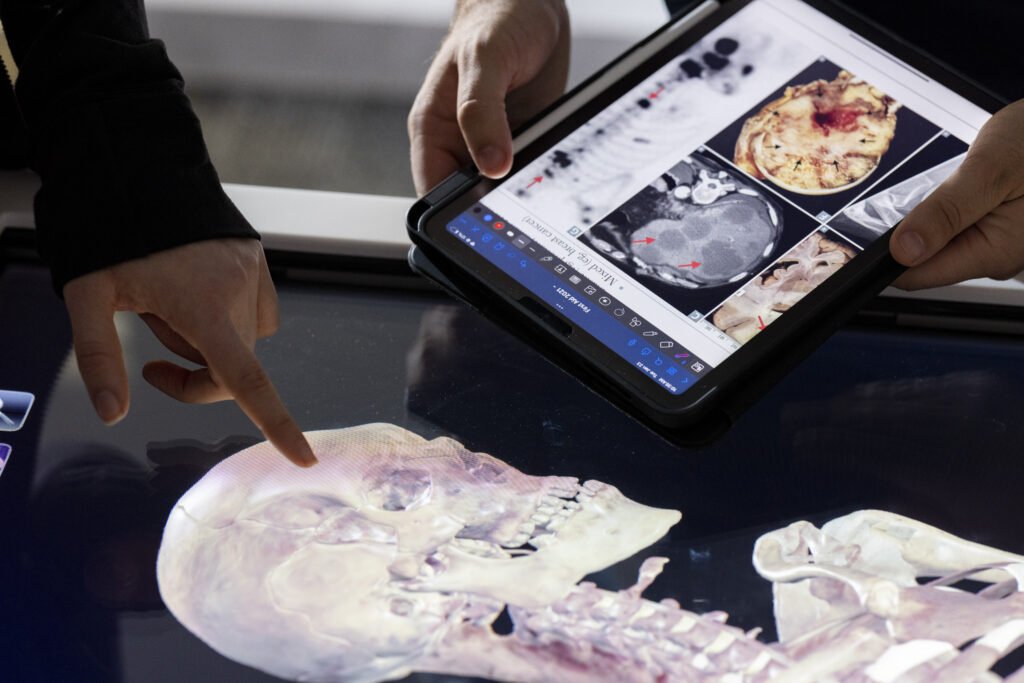With its vote on Feb. 13, the University System of Georgia Board of Regents authorized the University of Georgia to establish a new independent School of Medicine in Athens.
The initiation of a school of medicine at Georgia’s flagship university comes at a time when the state faces a significant shortage of medical professionals. In recent years, Georgia’s population has surged to approximately 11 million residents, straining existing medical infrastructure and resulting in longer wait times for appointments and reduced access to care. Georgia—the nation’s eighth largest state—is forecasted to experience further population growth in the coming years, while nearly one-third of the state’s physicians are nearing retirement.
“This is a very important decision by the Board of Regents and a historic moment for our state and university,” said UGA President Jere W. Morehead. “As a land-grant and sea-grant research university, our commitment to Georgia is unwavering, and the new University of Georgia School of Medicine will expand our positive impact on Georgians in many critical ways. The School of Medicine will significantly expand the pool of medical professionals in Georgia, attract more top-tier scientists and researchers to the state, and produce more physicians to serve underserved and rural Georgia communities.”
Building on success, meeting a critical need
The UGA School of Medicine will build on the success of the Augusta University/University of Georgia Medical Partnership, which has been educating physicians in Athens since 2010. The AU/UGA Medical Partnership is currently the longest-serving medical partnership in the United States; others founded around the same time have already transitioned to independent medical schools, which is the natural evolution for such arrangements. UGA will continue to work closely with the Medical College of Georgia to ensure a smooth transition for current medical students as UGA seeks accreditation from the Liaison Committee on Medical Education (LCME).
“I am thrilled by the Board of Regents’ decision to authorize UGA to seek an independent school of medicine,” said Dr. Shelley Nuss, campus dean of the AU/UGA Medical Partnership. “By expanding the pipeline of students in medical education, the UGA School of Medicine will help Georgia produce more highly trained physicians, alleviating physician shortages and improving the state’s ability to provide quality health care for its citizens.”
Georgia currently ranks No. 40 among U.S. states for the number of active patient care physicians per capita, according to the Association of American Medical Colleges (AAMC), while it ranks No. 41 for the number of primary care physicians and No. 44 for the number of general surgeons per capita. The shortage of medical providers is particularly acute in rural and underserved areas, where access is even more limited.
The university will leverage its vast public service network — which already serves all 159 counties in the state — to partner with local health care providers, rural hospitals and clinics to extend the school’s impact throughout Georgia. Additionally, area health systems across the state have more than sufficient capacity to serve as additional clinical training sites and have expressed their eagerness to do so.
The School of Medicine will benefit from robust internal demand for medical education among UGA undergraduates. The University of Georgia is the ninth highest producer of medical school applicants in the United States, according to the AAMC.
Fueling discovery and economic development
“The UGA School of Medicine will help address the health care needs of Georgia while also serving as a springboard for economic development that advances our state,” said UGA Senior Vice President for Academic Affairs and Provost S. Jack Hu. “The school will attract additional researchers and scientists as well as biomedical companies and startups, fueling discovery and commercialization that create new opportunities for Georgians.”
The School of Medicine will add to the University of Georgia’s burgeoning research enterprise. In fiscal year 2023, UGA’s total R&D expenditures reached an all-time high of $570.9 million. Over the past decade, total R&D expenditures at UGA have increased 61%, while federally funded R&D has risen by 76%.
Driving these gains have been increases by several federal agencies, including the National Institutes of Health, which funds a significant portion of America’s biomedical research. The University of Georgia receives the largest amount of NIH funding among all of Georgia’s public research universities and is the largest recipient of NIH funding among American public universities without a medical school.
UGA scientists already work closely with several research universities and medical schools in Georgia, and the addition of a new stand-alone medical school will strengthen those partnerships and enhance opportunities for future collaboration. Faculty in several colleges and schools on campus already engage in research on Parkinson’s, COVID-19, malaria and other conditions such as stroke. Their discoveries have led to new treatments and vaccines that are among the 1,100 products developed from UGA research to date.
Fortified by public and private support
In addition to funding from state government, strong private support will fortify efforts to create a School of Medicine at UGA. Donors have demonstrated robust support for UGA initiatives in recent years. In fiscal year 2023, UGA raised over $240 million in gifts and pledges from alumni, friends and foundation and industry partners. The university’s three-year rolling fundraising average is now a record $235 million per year, with annual contributions exceeding $200 million for the past six consecutive years.









